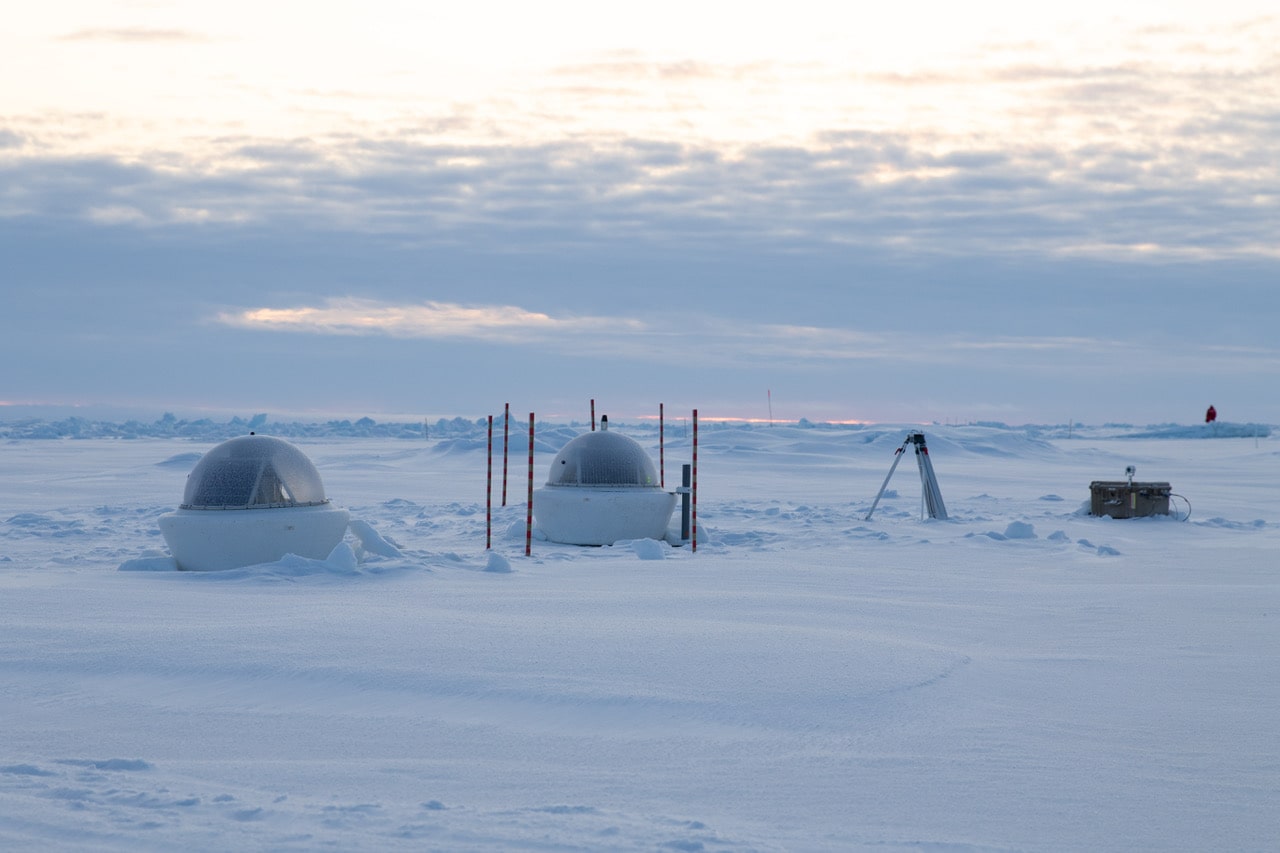Overview
In the Arctic the human-induced planetary warming already leads to changes that are faster here than anywhere else on our planet. They have environmental, societal, and economic impacts, locally and due to the Arctic’s role in the global climate system, far beyond the Arctic proper. This highlights the need for a sustained and accessible observing system that is tuned to the diverse needs of users, ranging from local inhabitants to academia through to industry and decision-makers.

The key motivation behind Arctic PASSION (2021-2025) is the co-creation and implementation of such a coherent, integrated Arctic observing system: the ‘Pan-Arctic Observing System of Systems - pan-AOSS’. It aims to overcome known flaws in the present observing system by refining its operability, improving, and extending pan-Arctic scientific and community-based monitoring and the integration with Indigenous and Local knowledge, by streamlining the access and interoperability of Arctic Data systems and services, and by ensuring the economic viability and sustainability of the observing system for years to come.
The scientific, societal, and economic challenges associated with the changing Arctic are immense. Free and open access to the best-available information and services empowers communities, economy, governments, and others to develop evidence-based economic, policy, investment, management, and societal decisions. As the Arctic continues to change, the demand for improved access to observational data streams and services that are more reliable and more diverse, will continue. Unrestricted access to the latest environmental observations strengthens the decisions we make for a safe, sustainable, and prosperous Arctic.
Although there have been several advances in integrating Arctic observations in recent years, the various components of current Arctic observation systems seem fragmented, and the data are, in part, difficult to access and often not tailored to the needs of the users or stakeholders. Arctic PASSION aims to improve the situation by co-creating an integrated pan-AOSS via international collaboration, including Indigenous and local communities, that can continuously provide unrestricted, high quality, science-based Earth observation information tuned to address the urgent needs of people living in the Arctic and have relevance to European and global society.

The pan-AOOS shall allow for the monitoring of ongoing environmental changes, reduce uncertainly in predicting future system changes, support risk assessment, and inform and guide mitigation and adaptation measures, and to support sustainable development in the Arctic and elsewhere.
Key question for Arctic PASSION:
- What needs to be done to improve and extend the terrestrial, marine and cryospheric in-situ measurements and the community-based monitoring systems?
- Which are the services/networks necessary for adaptation to climate change in the region?
- How to best involve Indigenous Peoples, local population, and other actors in the region into the co-creation of useful services?
- How can an operational observing system build on the essential contribution of Indigenous Knowledge and Community Based Monitoring systems?
- How can we help to integrate Community Based Observations, Traditional Knowledge and Scientific Observations into an integrated Sustainable Arctic Observing System?
- How do we make data from an Arctic observing system more easily accessible?
- What are the societal benefits of an Observing System for people(s) living in the region as well as for those living outside of the Arctic domain?
- What can we do to make a positive contribution to national, regional, and international decision-making processes and science strategies?
- How can we support communication between scientists, policy makers, commercial actors, and local population?
- How to best reach out to public, science, industry, and policy stakeholders? What is needed to enable their support for a sustainable Arctic Observing System?
- How can we argue for an extended Arctic Observing System support by society based on societal benefits?
For more information on how Arctic Passion will progress, check out Our Work page.
Learn about similar ongoing work
The Research Network Activities for Sustained Coordinated Observations of Arctic Change (RNA CoObs) project seeks to support the Sustaining Arctic Observing Networks (SAON) Roadmap for Arctic Observing & Data Systems (ROADS). Through meetings, collaborations, and partnership with the Arctic Observing Summit (AOS) Food Security Working Group (FSWG) and other partners, the project will step through the elements of ROADS, including the identification of Shared Arctic Variables (SAVs) tied to societal benefits as defined by the FSWG, the capture of requirements for observing activities aimed at SAVs, and the design and adaption of information infrastructure. With a focus on the Pacific Arctic the project is meant to help explore and demonstrate how an internationally coordinated roadmap for Arctic observing can be put into action.
The Canadian Consortium for Arctic Data Interoperability (CCADI) is an initiative to develop an integrated Canadian arctic data management system that will facilitate information discovery, establish sharing standards, enable interoperability among existing data infrastructures, and that will be co-designed with, and accessible to, a broad user base. Key to the CCADI vision are: standards and mechanisms for metadata, data and semantic interoperability; a distributed data exchange platform; streamlined data services with common entry, access, search, match, analysis, visualization and output tools; an intellectual property and sensitive data service; and data stewardship capacity.
